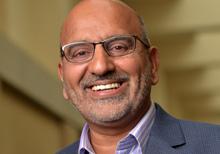Contending Modernities co-director Ebrahim Moosa’s recently published op-ed in the Washington Post, My madrassa classmate hated politics. Then he joined the Islamic State, provides a timely case study of a successful South African imam’s unlikely immigration to Syria to join the Islamic State. Reflecting on the way that Rashid Moosagie “surrendered the orthodox commitment about which he had exhorted me [in his years as a madrassa student] and adopted the very idea he had mocked: a toxic version of political Islam on steroids”, Moosa rues the failure of mainstream Islam to diffuse the theologically toxic doctrines which are used as a platform of legitimacy and recruitment for extremist groups.
The theme of Islamic orthodoxy’s “archaism in theology and ethics”, and the need for “new interpretations of Islamic law based on current realities”, was expounded upon in Moosa’s Orlando Sentinel op-ed, Update of archaic doctrine should accompany censure, last week. Moosa decries “the absence of serious efforts to replace troublesome doctrines” — a major factor hindering the success of strategies designed to combat extremism — arguing that “when idolatry of method is identical to the truth, then it promises the forfeiture of meaningful ethical outcomes.” Therefore, the project to “restore moral common sense in Muslim moral philosophy and theology”, Moosa argues, should be a priority in long-term efforts to address the extremism of the self-proclaimed Islamic State.

